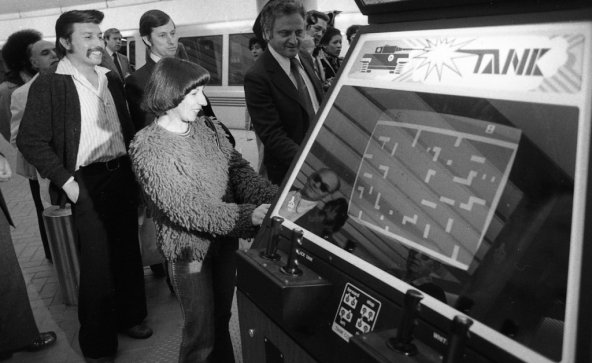Elon Musk has been on a Nick Bostrom bender for awhile now, spending big money hoping to counter Homo sapiens-eradicating AI, after devouring the Oxford philosopher’s book Superintelligence. This week, the Mars-positive mogul contended humans are almost definitely merely characters in a more advanced civilization’s video game, something Bostrom has theorized for quite some time. Two excerpts follow: 1) The opening of John Tierney’s excellent 2007 NYT article, “Our Lives, Controlled From Some Guy’s Couch,” and 2) Ezra Klein’s Vox piece about Musk’s Sims-friendly statements.
From Tierney:
Until I talked to Nick Bostrom, a philosopher at Oxford University, it never occurred to me that our universe might be somebody else’s hobby. I hadn’t imagined that the omniscient, omnipotent creator of the heavens and earth could be an advanced version of a guy who spends his weekends building model railroads or overseeing video-game worlds like the Sims.
But now it seems quite possible. In fact, if you accept a pretty reasonable assumption of Dr. Bostrom’s, it is almost a mathematical certainty that we are living in someone else’s computer simulation.
This simulation would be similar to the one in The Matrix, in which most humans don’t realize that their lives and their world are just illusions created in their brains while their bodies are suspended in vats of liquid. But in Dr. Bostrom’s notion of reality, you wouldn’t even have a body made of flesh. Your brain would exist only as a network of computer circuits.
You couldn’t, as in The Matrix, unplug your brain and escape from your vat to see the physical world. You couldn’t see through the illusion except by using the sort of logic employed by Dr. Bostrom, the director of the Future of Humanity Institute at Oxford.
Dr. Bostrom assumes that technological advances could produce a computer with more processing power than all the brains in the world, and that advanced humans, or “posthumans,” could run “ancestor simulations” of their evolutionary history by creating virtual worlds inhabited by virtual people with fully developed virtual nervous systems.•
From Klein:
By far the best moment of Recode’s annual Code Conference was when Elon Musk took the stage and explained that though we think we’re flesh-and-blood participants in a physical world, we are almost certainly computer-generated entities living inside a more advanced civilization’s video game.
Don’t believe me? Here’s Musk’s argument in full:
The strongest argument for us being in a simulation probably is the following. Forty years ago we had pong. Like, two rectangles and a dot. That was what games were.
Now, 40 years later, we have photorealistic, 3D simulations with millions of people playing simultaneously, and it’s getting better every year. Soon we’ll have virtual reality, augmented reality.
If you assume any rate of improvement at all, then the games will become indistinguishable from reality, even if that rate of advancement drops by a thousand from what it is now. Then you just say, okay, let’s imagine it’s 10,000 years in the future, which is nothing on the evolutionary scale.
So given that we’re clearly on a trajectory to have games that are indistinguishable from reality, and those games could be played on any set-top box or on a PC or whatever, and there would probably be billions of such computers or set-top boxes, it would seem to follow that the odds that we’re in base reality is one in billions.
Tell me what’s wrong with that argument. Is there a flaw in that argument?•
Tags: Elon Musk, Ezra Klein, John Tierney, Nick Bostrom

